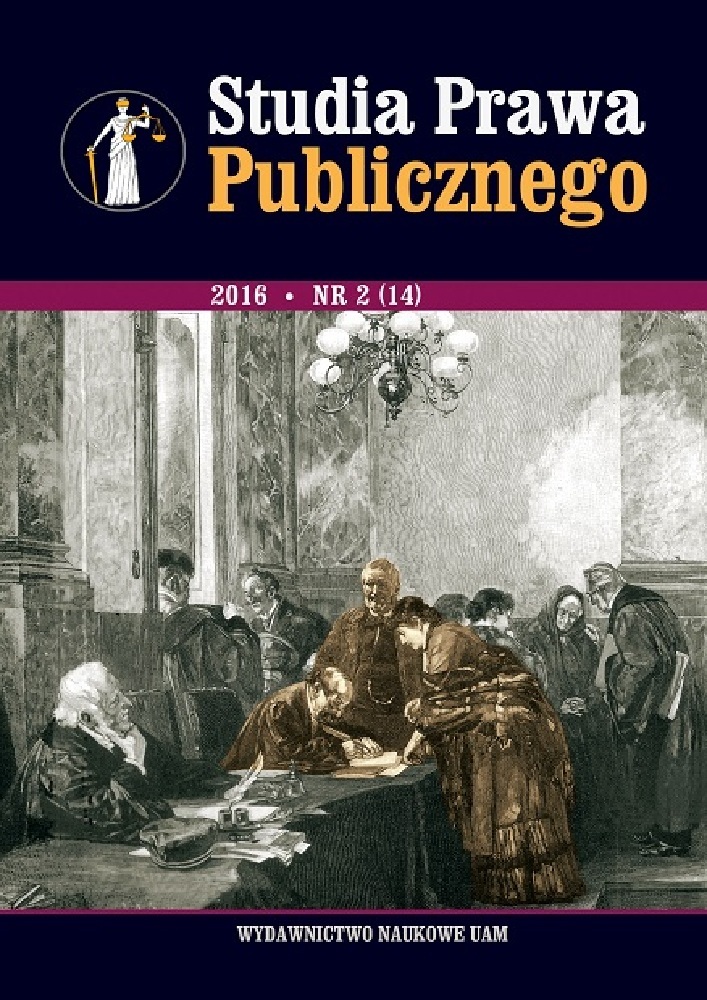Abstract
The regulation of the legal nature of an appeal proceeding or a judgment crowning the proceeding is ambiguous and unclear. The National Appeals Chamber which issues a judgment decides upon the validity of a contract, the obligations of the contracting authority, financial penalties, and, indirectly, the actions taken by contractors. The influence of such decisions is of theoretical and practical significance and justifies an analysis presented in the paper. Thus the constitutive features of judgments handed down by a public administration body have been analysed and compared with typical forms of law enforcement (judicial decisions of the common courts, decisions issued by arbitration courts and individual administrative decisions). The latter have been given particular attention. The deliberations were based on the position of the doctrine of the law on public procurements, provisions of civil law and administrative law, as well as judicial decisions and judgments issued by the National Appeals Chamber. These were then analysed in the light of normative regulations of the Act on Public Procurements. The analysis revealed a multitude of problems resulting from the adoption by the legislature of atypical forms of action by the National Board of Appeal. The analysis provides the basis for further research aimed to create a coherent system regulating public procurements to ensure its proper functioning and to reduce the possibility of further interpretative problems.
License
Copyright (c) 2019 Konrad Różowicz

This work is licensed under a Creative Commons Attribution-NonCommercial-NoDerivatives 4.0 International License.
